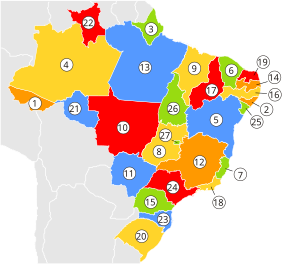13 Great and Proven Ways to Moderate a Panel with 100% Success Rate
Friday, July 9th, 2010
-

- Image via Wikipedia
Research your panel subject and find out and define the latest trends.
Prepare more questions than you think you will need, it isn’t good [and pretty stressful] to run out. However, with a smart panel, that is very unlikely to happen.
Send the questions to the panel members ahead of time and encourage them to submit questions of their own.
Contact all panel members ahead of time per telephone, agree on their areas of expertise and which questions they want to answer; in addition, see if there is some challenging issue they would like to raise to make the panel more interesting. At the event, introduce panel members to each other 15 minutes or so before start time so that they can get to know and feel comfortable with each other.
Don’t prepare a lengthy introduction, the moderator should facilitate the panel, not push his/her own opinions.
Tell the audience what you are going to do in the allotted time, and encourage audience members to ask questions during the event. If people wait until the end, they can either forget what they were going to ask, or can see the whole event as a [tedious?] lecture. Remember, moderating a panel is having a conversation with the audience as well as with the panelists.
You can ask the panelists to introduce themselves with a couple of words, before they answer the first questions. Don’t read their bios out loud, it is often embarrassing for the accomplished panelist and it wastes time. Audience members can look their bios up online after the event.
Ask each question only of one or two panelists and then move on to the next question for other panelists. Never have all panelists answer every question; it can be a really boring process and it not fair to the panelists.
Make sure you present your panelists in a very good light, you are there to make them shine and never to embarrass them.However, that doesn’t mean you have to let them get away with evading issues.
Prepare to cut a panelist off gently if he/she starts to ramble. There is nothing worse than someone going on and on – except for an audience member who does the same thing.
Ask a couple of questions of the panelists at the beginning of the event and then let the audience know that now would be a good time for their first questions. If the audience has more, relevant questions and the panelists are interested in answering them, let your own questions slide. It is more important to have a good event where everyone participates and is engaged, than getting through your own agenda.
Make sure that the panelists address their points to the audience and not to the moderator or their fellow panelists. Otherwise this will look like a private event and people will disconnect.
Never disagree with the audience, they will never forgive you. Find a way to incorporate the point raised into the discussion so that it makes sense [which is almost always possible].
Know when to stop. First of all, stick to the time you agreed on to stop, give a summary of the points that were made, thank the panelists, thank the audience and don’t forget to thank the organizers and the people who let you use their facilities.
Lastly, have fun. If a moderator is enjoying him/herself the audience can feel it and will join in.
PS: There are lots of good articles online about moderating panels, it is worthwhile reading several of them to incorporate all their good ideas!
Related articles by Zemanta
- 5 B2B Social Media Lessons from Presentation Planning (socialmediab2b.com)

